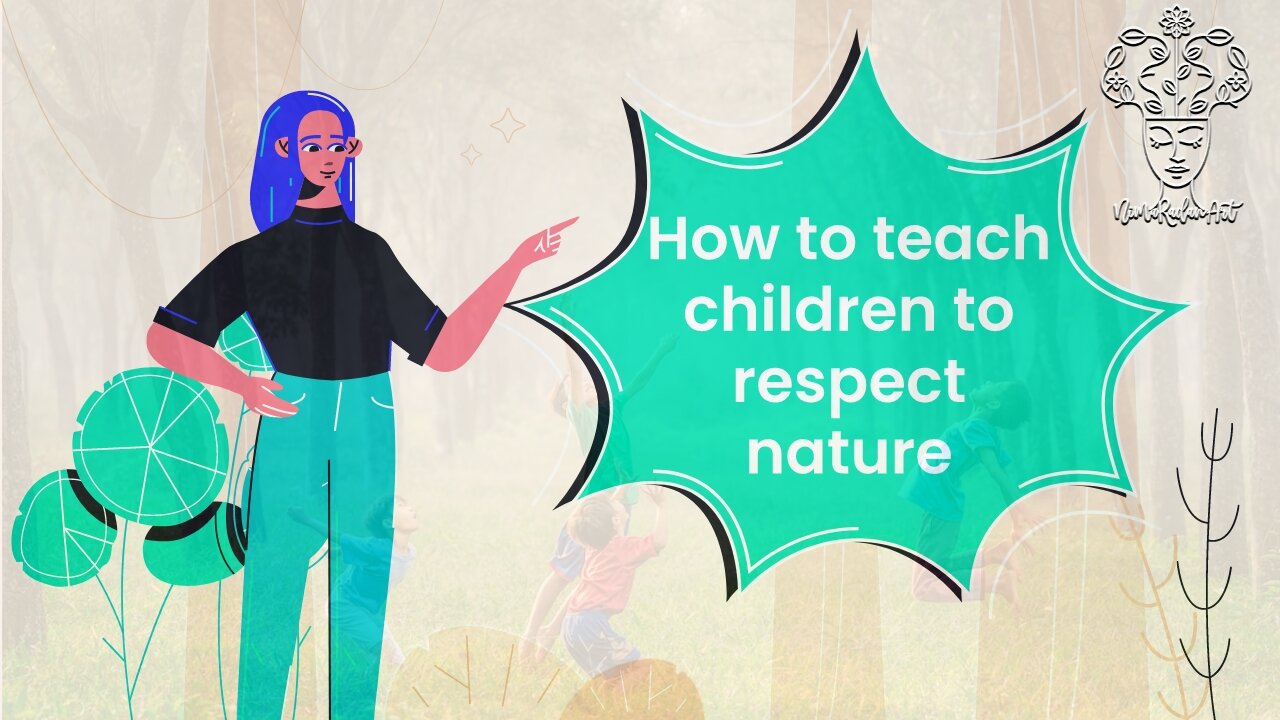Premium Only Content

How to teach children to respect nature
Today and every day, I choose to use my actions, words, and choices to spread kindness and make a positive impact on the world around me."
Teaching children to respect nature is crucial for their understanding of the environment and their role in preserving it. Here are some tips on how to teach children to respect nature:
1. Lead by example: Children learn best by observing and imitating adults. Show them how you respect nature by practicing eco-friendly habits like recycling, conserving water, and reducing waste. Take them on nature walks and demonstrate your appreciation for the beauty and diversity of the natural world.
2. Educate them about nature: Teach children about the importance of nature, its ecosystems, and the interdependence of all living things. Explain how their actions can have positive or negative impacts on the environment. Use age-appropriate books, documentaries, and online resources to help them understand concepts like biodiversity, climate change, and conservation.
3. Encourage outdoor activities: Encourage children to spend time outdoors and engage in activities that connect them with nature. Encourage them to play in parks, hike, camp, or simply explore natural surroundings. This will help them develop a sense of wonder and appreciation for the natural world.
4. Teach them about wildlife: Teach children about the different species of wildlife and their habitats. Explain the importance of preserving habitats for animals to thrive. Encourage them to observe birds, insects, and other animals in their natural environments and teach them to respect their space and not disturb them.
5. Teach the three R's: Teach children the three R's: Reduce, Reuse, and Recycle. Explain the importance of reducing waste, reusing items whenever possible, and recycling to conserve resources and protect the environment.
6. Engage in nature conservation activities: Involve children in activities that promote nature conservation. This could include participating in local clean-up events, planting trees, or creating a small garden at home. These hands-on experiences will help them understand the importance of taking care of the environment.
7. Foster a sense of empathy: Help children develop empathy towards nature by encouraging them to think about how their actions impact the environment and the living beings that depend on it. Teach them to treat all living things with kindness and respect, including plants, animals, and insects.
8. Teach responsible outdoor behavior: Teach children to be responsible when they are outdoors. Teach them not to litter, to stay on designated paths, and to leave natural areas as they found them. Teach them to appreciate the beauty of nature without causing harm.
9. Encourage nature journaling: Encourage children to keep a nature journal where they can document their observations, sketches, and thoughts about the natural world. This can help them develop a deeper connection with nature and cultivate a sense of respect and appreciation.
Remember, teaching children to respect nature is an ongoing process. By instilling these values early on, you can help them develop a lifelong commitment to environmental stewardship.
Remember, art is a form of self-expression, so let your creativity flow and use it to promote good feelings within yourself and others.
Sincerely - Nima
#TeachingKids
#EducationMatters
#ChildLearning
#ParentingTips
#EarlyEducation
#TeachThemWell
#LearningThroughPlay
#KidFriendly
#EducationForAll
#TeachersOfInstagram
#MontessoriEducation
#STEMEducation
#CreativeLearning
#ChildDevelopment
#TeacherLife
-
 LIVE
LIVE
CatfishedOnline
7 hours agoWoman’s Celebrity BF Demands $20M Ransom!
46 watching -
 LIVE
LIVE
Tundra Tactical
1 hour agoWho Will Be the FIRST 2A CZAR?
55 watching -
 LIVE
LIVE
China Uncensored
5 hours agoXi Jinping's Days Are Numbered
114 watching -
 LIVE
LIVE
The Jimmy Dore Show
2 hours agoJordan Peterson Wants “Guardrails” on Rogan’s Guests! RFK Drops Hammer on Food Dyes! w/Ashton Forbes
11,875 watching -
 LIVE
LIVE
Dr Disrespect
8 hours ago🔴LIVE - DR DISRESPECT - WARZONE - HOW TO WIN SOLO GAMES
1,326 watching -
 LIVE
LIVE
RalliedLIVE
3 hours ago $0.06 earnedWednesday Warzone Special w/ Rallied
50 watching -
 49:17
49:17
Sarah Westall
1 hour agoCIA Supports Both Sides, Ukraine Frontlines, Fake Syria Chemical Attack – Pearson Sharp
2833 -
 1:11:56
1:11:56
vivafrei
5 hours agoCuomo for Prosecution! Fox News Goes Woke? And Whatever Else the News Brings! Viva Frei Live!
57K39 -
 LIVE
LIVE
2 MIKES LIVE
2 hours ago2 MIKES LIVE #209 News Breakdown Wednesday!
141 watching -
 LIVE
LIVE
Quite Frankly
8 hours ago"Glitches In THE MATRIX" ft. M3thods 4/23/25
941 watching